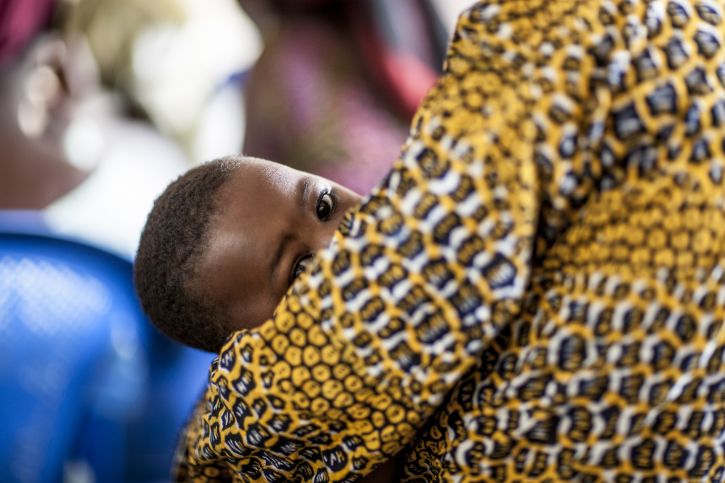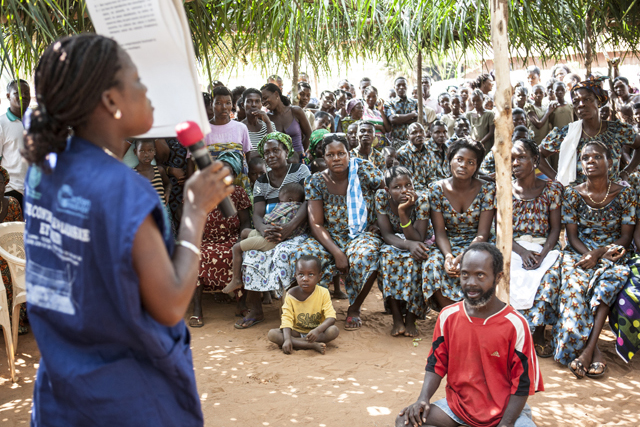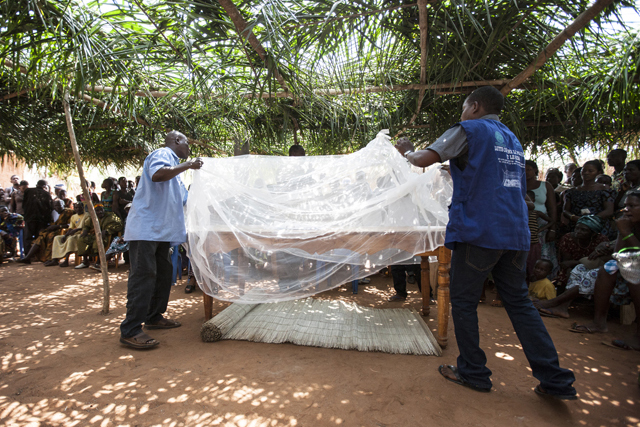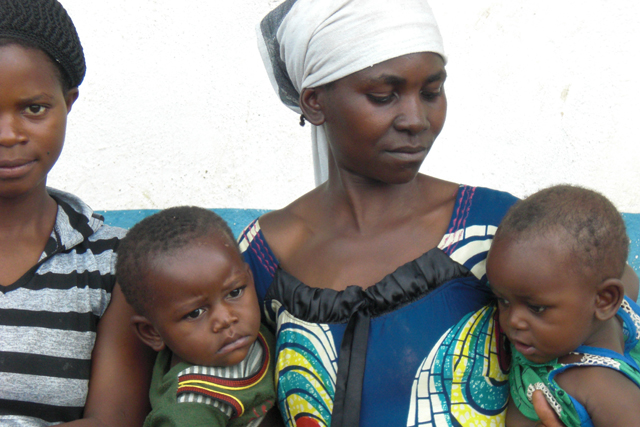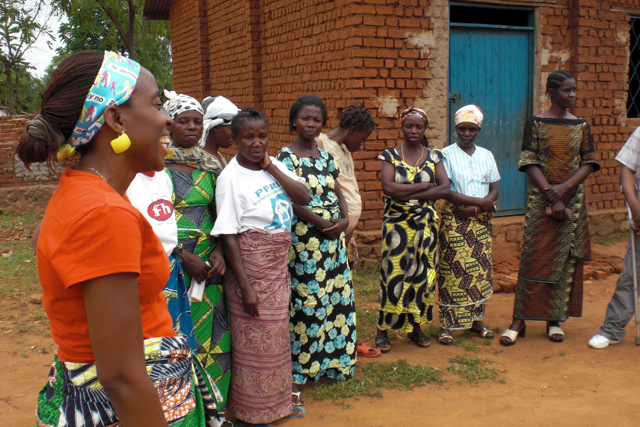You are here:
Malaria
Malaria is one of the most common infectious diseases and is often fatal when not treated properly.
Malaria is an infectious disease that is transmitted by tropical mosquitoes. The symptoms of malaria are high, recurring fever, chills, disorders of the gastrointestinal tract and cramps. Especially for children the disease can quickly lead to coma and death.
Although Malaria is a dangerous disease, it is preventable and treatable. The greatest protection is granted by sleeping under a treated mosquito net, because the female mosquitoes transmitting the disease are active mainly at night. Such a net is available for five euros. If an infection occurs, several substances are available to treat the disease. The most effective drugs are based on a herbal agent that is extracted from the plant Artemisia annua. Treatment with this drug is available for just one euro.
action medeor works in different projects to combat malaria and to inform people in affected areas how to protect themselves and how to react when discovering symptoms.
In Togo action medeor works with the local organisation Amitié et Action pour le Développement (2AD). In 50 villages people are trained to spread the knowledge about malaria prevention in their communities. Furthermore 7.500 treated mosquito nets are distributed and people learn about the importance of using these nets and how to properly install and care for the nets.
In another project in the Democratic Republic of the Congo action medeor and the local partner Association des Femmes pour la Promotion et le Développement Endogène asbl (AFPDE) work to reduce the transmission of malaria and HIV in the project area. Information campaigns are carried out and local people trained as community health workers to teach their communities about malaria and HIV transmission and protection from falling ill.
